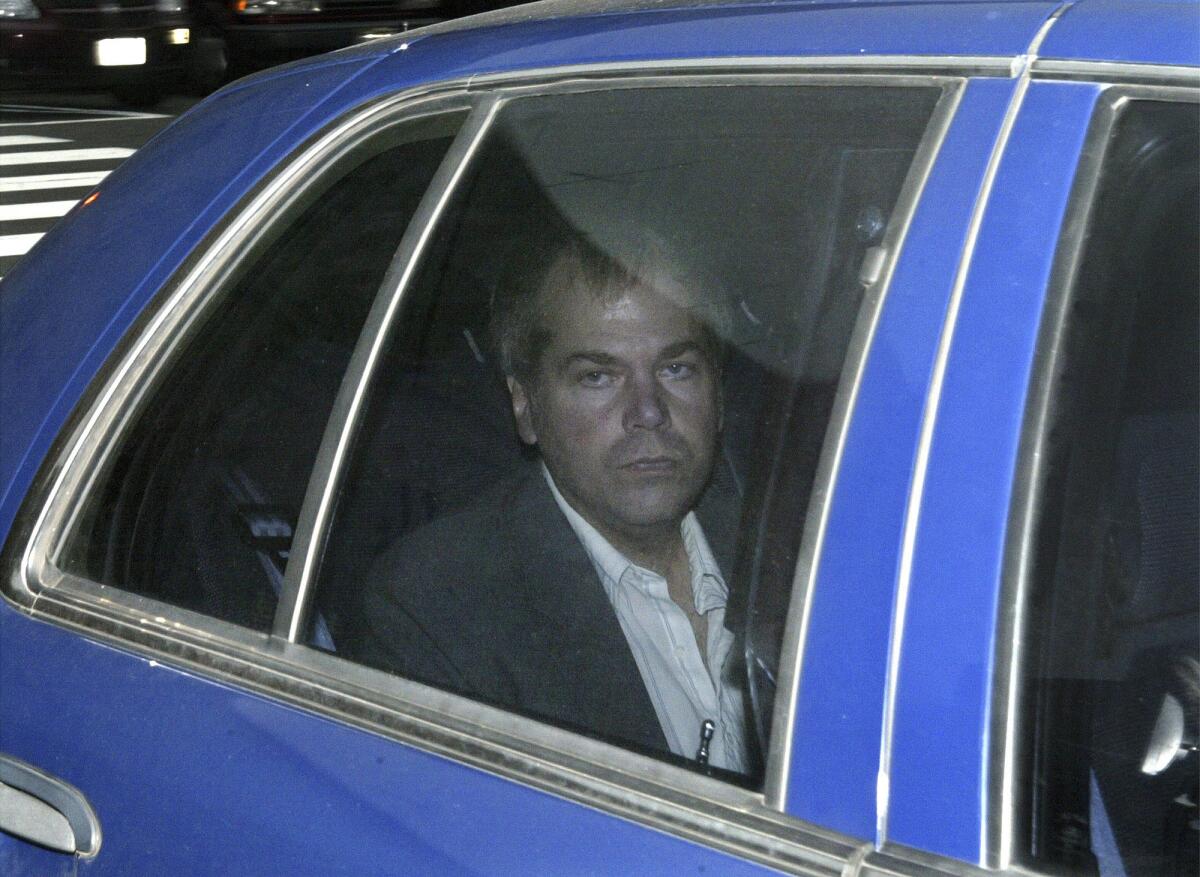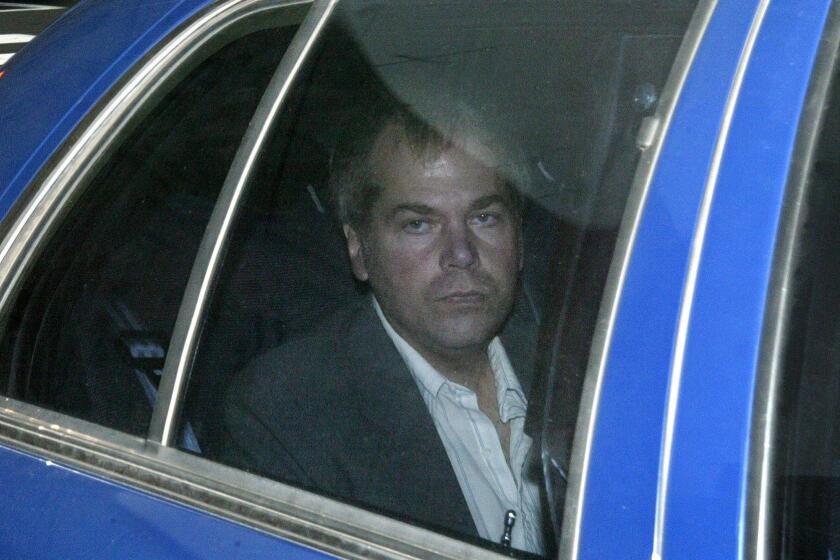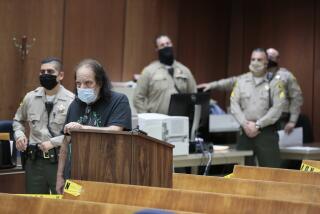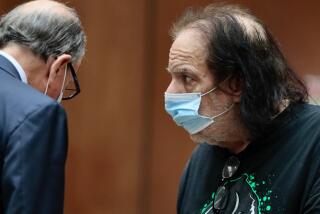John Hinckley Jr., who shot Reagan, to be freed from oversight

- Share via
A federal judge said Monday that John Hinckley Jr., who tried to assassinate President Reagan four decades ago, can be freed from all his remaining restrictions next year if he continues to follow those rules and remains mentally stable.
U.S. District Court Judge Paul L. Friedman in Washington said during a 90-minute court hearing that he’ll issue his ruling on the plan this week.
Friedman said the plan is to release Hinckley from all court supervision in June if he remains mentally stable and continues to follow the court-issued rules that were imposed on him after he left a Washington hospital in 2016 to live in Williamsburg, Va.
Since Hinckley, 66, moved to Williamsburg, the court-imposed conditions have included doctors and therapists overseeing his psychiatric medication and deciding how often he attends individual and group therapy sessions. Hinckley also can’t have a gun. And he can’t contact Reagan’s children, other victims or their families, or actress Jodie Foster, whom he was obsessed with at the time of the 1981 shooting.
Two years after he was discharged from a mental hospital, John W.
Attorney Barry Levine has asked for unconditional release, saying Hinckley no longer poses a threat. A 2020 violence risk assessment conducted on behalf of Washington’s Department of Behavioral Health concluded that Hinckley would not pose a danger.
The U.S. government opposed ending restrictions as of a May court filing, and retained an expert to determined whether Hinckley would pose a danger to himself or others if unconditionally released. Findings from such an examination have not been filed in court.
Hinckley was 25 when he shot and wounded the 40th U.S. president outside a Washington hotel. The shooting paralyzed Reagan Press Secretary James Brady, who died in 2014. It also injured Secret Service agent Timothy McCarthy and Washington police officer Thomas Delahanty.
Jurors decided Hinckley was suffering from acute psychosis and found him not guilty by reason of insanity, saying he needed treatment, not life in prison.
More to Read
Sign up for Essential California
The most important California stories and recommendations in your inbox every morning.
You may occasionally receive promotional content from the Los Angeles Times.











